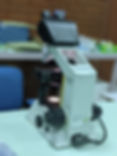
DNA Typing

Our passion to improve
We pioneered the use of DNA typing for human identification for forensic casework and analysis of family relationships including parentage testing. We are a major supplier of this technology to the medico-legal community and the judicial system in Sri Lanka. Our reputation for integrity and reliability has made us the main provider of forensic DNA testing in the country. Over 4000 cases of disputed parentage and another 4000 criminal cases have had the advantage of DNA evidence through Genetech.

What is DNA typing?
DNA typing is a method of identifying individuals from the differences in their DNA. It is used for forensic casework as well as for determining familial relationships between individuals including paternity, maternity and siblingship.

Advantages of DNA typing
The science of DNA typing relies on technology that allows an individual's DNA to be examined and analysed. A person's DNA is unique: no two individuals (with the exception of identical twins) have the same DNA. Every cell in a person's body has the same DNA. Hence, DNA taken from any part of the body from the same individual will always be the same.
DNA typing can be performed from many types of biological specimens including blood, saliva, sperm cells, muscle, teeth and bones. Thus, a person's DNA can be typed from very little tissue or body fluid.
DNA typing is used for two major purposes:
-
Identification of individuals from biological samples: This is mainly done in forensic casework, where it is possible to determine the identity of a criminal by typing the DNA left behind at the scene of the crime.
-
Determination of familial relationships: This includes paternity testing, maternity testing, sibling testing, grand-parent testing, and even the identification of mutilated bodies.
DNA typing is the best method of identifying individuals and determining familial relationships due to many reasons.
-
It is extremely sensitive: with even a very small amount of tissue, the test can be performed successfully.
-
It is also very accurate: it can give a test result with a very high degree of certainty.
-
It is very reliable: the likelihood of obtaining a false result can be minimised, and the likelihood of making an error in the conclusion can be calculated.

How does DNA typing work?
In the DNA typing process, a DNA banding pattern or profile of an individual is first obtained from a tissue sample. The DNA profile is observed in the form of a set of DNA bands known as alleles. Each person has a maximum of two specific alleles for a given genetic location. This DNA profile is compared with the profile obtained from a sample taken from the scene of a crime. If the alleles in the two profiles match, then it can be said that the sample taken from the scene of the crime is from the individual that was tested.
DNA typing services
Child custody and maintenance: In cases where one parent is claiming the custody and maintenance of a child and the other parent is refusing to accept parentage.
Proof of adultery: Especially in divorce cases where the paternity of the child is suspect, and the wife is being accused of adultery, DNA typing can be used to determine whether the husband is the father of the child.
Cost
We are happy to announce that after much research and optimisation, we have streamlined our DNA typing methods, and we are therefore able to provide DNA typing services at a reasonable cost. We perform the same DNA typing tests which are used by internationally recognised laboratories, and maintain the same standards of quality so that the conclusions made by us can be verified by any accredited forensic DNA typing laboratory in the world.
Quality control
DNA typing is a highly specialised procedure which requires knowledge and skill. Furthermore, for DNA typing evidence to be acceptable in a Court of Law, it has to meet certain quality standards, which have been well documented and followed by forensic DNA laboratories worldwide. Accordingly in 2010, we became the first DNA typing laboratory in Sri Lanka to achieve ISO 15189:2007 (now 15189:2012) accreditation from Sri Lanka Accreditation Board (SLAB).
Accuracy of evidence
DNA testing is the most accurate and reliable means of identity verification and parentage testing. The degree of accuracy of the test will depend on the genetic diversity of the Sri Lankan population as well as the number of genetic locations (STR loci) which are tested. There is no mandatory number of STR loci required for a test, but the testing of nine STR loci or more is generally considered to be sufficiently accurate. We test up to 15 STR loci.
Ethical Guidelines
DNA typing is performed ethically only with the informed consent of the individual whose DNA is being typed. The persons concerned will be informed about the consequences of the test. Where such consent cannot be given such as in the case of minors, the consent of the guardian has to be obtained. We will not undertake samples for parentage testing without written consent from all living parties who will be tested.
Please contact us for personalised support on parentage and testing of other family relationships.
.png)